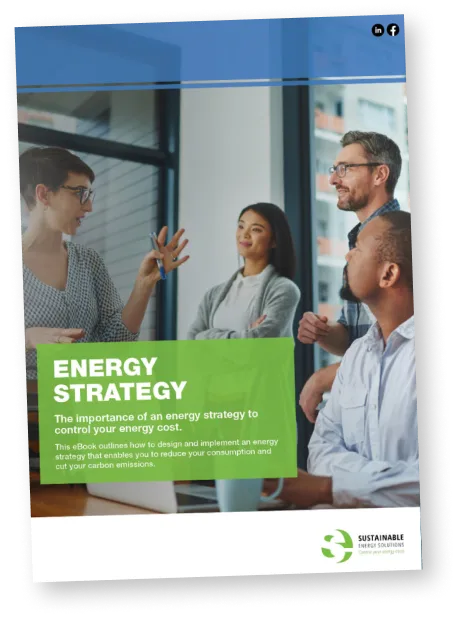Read our latest article by Amy Rider-Featherstone, Senior Account Manager, as she speaks in depth with a key client and large energy user – Alspec.
Interview with Alspec, one of Australia’s largest specialist aluminium manufacturers and distributors.
This week we spoke at length with Alspec, one of our key clients and large energy users, to uncover what impacts the domestic and international energy market has had on their business and supply chain, and how they have maintained their position as market leader.
Alspec is an Australian-owned, forward-looking company involved in the manufacture, design and distribution of specialist aluminium products for the building industry. Alspec has a network of 600 staff, fourteen locations nationally and has been in business for nearly 50 years.
Below are Alspec’s insights covering 5 key areas:
1. Energy and supply chain impacts
The energy supply shortages and price increases have affected our downstream suppliers and made their market more complicated, but as ALSPEC is not an aluminium smelter we are slightly removed. The fluctuation and increase in costs however have affected the whole industry and made it very challenging for our customers to ensure they are costing long-term projects accurately.
Aluminium prices have been extremely volatile over the past couple of years with the LME 3M trading between a high of USD 3,967 and a low of 2,102 throughout 2022. High energy costs and increased demand pushed pricing to historical highs, whereas labour shortages and recessionary fears have adversely impacted on supply capacity.
2. Maintaining position as Market Leader
Alspec has continued its success by ensuring we continue to grow and ensuring we are able to service our customers by holding more stock. By expanding our branch and warehouse network around Australia, we have ensured that we are more capable of servicing our customer’s needs. Alspec has over 14 branches strategically positioned around Australia.
Alspec significantly ramped up its safety stock even before the COVID-19 outbreak. In addition, Alspec ramped up its domestic supplies capacity amid demand surge during COVID. When other distributors faced lengthy delays moving metal from overseas into Australia, and when domestic supplies tightened, Alspec was in a great position to guarantee supplies to its customers across Australia.
3. Sustainability, energy consumption and emissions
The aluminium sector is an integral part of the sustainable economy and needs to be a key enabler in the shift toward a cleaner and greener economy. Four Australian aluminium smelters consume almost 10% of the national electricity grid—we are in a carbon-intensive industry. By using alternate energy sources, aluminium can be produced with carbon emissions as low as 4kgs.
Alspec is a member of the Australian Aluminium Council (AAC), whose members include Alcoa, RIO and South32. The AAC has aligned itself with the ‘Making Net-Zero Aluminium Possible: A Transition Strategy for a 1.5°C-Compliant Aluminium Sector’ unveiled in Sep 2022. The strategy recognises that it is possible to meet rising aluminium demand, reduce emissions from the sector to net-zero by 2050, and align with a 1.5°C target.
Alspec will continue to educate specifiers, architects, building designers and its customers about low-emission aluminium and how a responsible procurement strategy will positively impact our built environment and future environment. We also educate these groups that they should support manufactures who are participating in emission reduction initiatives.
4. Future of Aluminium
The aluminium industry can take a range of measures to reduce its energy consumption and emissions, including:
✔️ Increasing energy efficiency in production processes: Using advanced technologies that reduce energy consumption while maintaining production output.
✔️ Transitioning to renewable energy sources: Shifting to renewable energy sources such as solar, hydro, and wind power.
✔️ Improving waste management: Implementing practices such as recycling and reusing materials.
✔️ Promoting sustainable practices throughout supply chain: Ensuring sustainable sourcing of raw materials, reducing waste, and reducing water consumption.
Aluminium refining is one of the most energy and emissions-intensive processes in the aluminium value chain. It accounts for around 3% of Australia’s CO2 emissions and is one of the largest power consumers. But significant progress towards viable solutions is expected. The Australian Renewable Energy Agency (ARENA) roadmap for decarbonising the alumina industry identifies 4 key decarbonisation technologies that could transform how refineries consume and use energy by enabling the uptake of renewable energy and removing the use of fossil fuels: mechanical vapour recompression, electric boilers, electric calcination, and hydrogen calcination. In combination, these 4 technologies have the potential to reduce emissions from Australia’s 6 alumina refineries by up to 98%.
These steps can help to improve sustainability, reduce costs, and enhance the industry’s reputation as a responsible and sustainable supplier. In the next 5-10 years, Alspec foresees the industry will evolve driven by technological advances, changing consumer preferences and evolving global trends. We are already seeing an increase in low-emission aluminium being specified in projects.
5. Engagement of Sustainable Energy Solutions
Having a national footprint and leading in the Australian aluminium industry, it had become paramount to secure our national energy portfolio to combat the rising energy crisis. Bringing Sustainable Energy Solutions (SES) into the fray solidified our understanding and cooperation and allowed Alspec to have the most transparent understanding with our national energy portfolio needs.
Working with SES has enabled us to gain a holistic understanding of the current energy market climate. SES has given us an in-depth education of the energy market in Australia and have advised and recommended on processes, software, and national analytics of Alspec’s national energy footprint.
-END-
Having an energy strategy is critical to controlling your energy costs?
Chat to our team of experts if your business wants help reviewing your energy costs and consumption by filling out our contact form or calling us on (02) 9371 4153.
